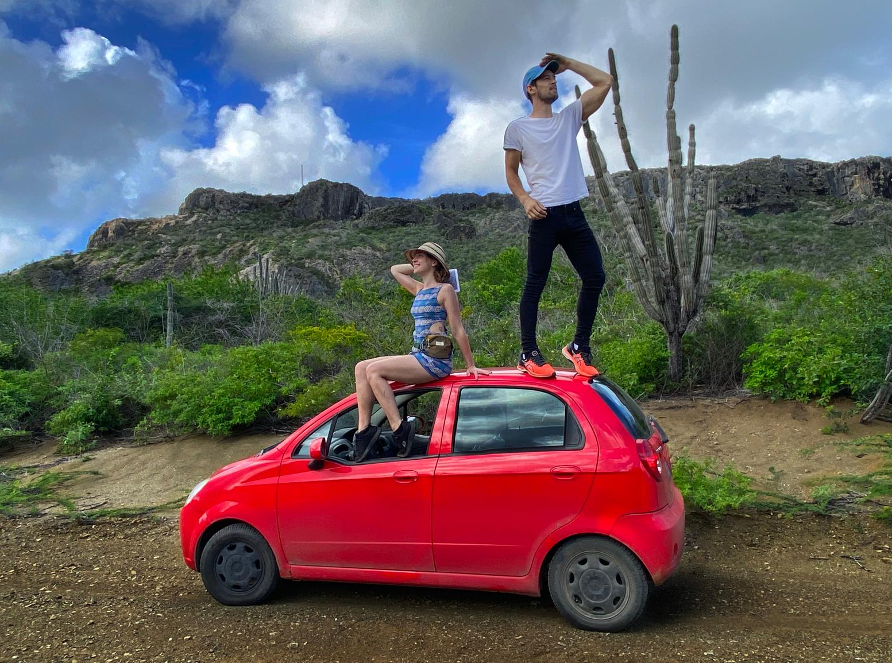Graduation Project Tewaii Laman
A small red car is driving in reverse, while a TU Delft master student is leaning out of the passenger window. “Left, right, more left. You got this, cuz!” As pot-holes and puddles are avoided, trees with giant thorns are scraping off the car’s varnish. Water equipment, boots and a giant hedge cutter tumble around on the back seat as the car maneuvers sharp turns. ‘’I think it’s the third cactus to the right now. I see it, I see the mill! We’re here!’’
Two cousins and the small red fieldwork car
In the unruly thicket of Curaçao, Environmental Engineering student Jessie-Lynn van Egmond is on thesis adventure, hunting down old groundwater wells to analyze their water quality. The graduation research is inspired by a 1997 research paper from Utrecht University, where 97 Curacao wells were analyzed on a range of water quality parameters. Data that overlaps several decades is valuable to determine the effects of salinization and other long-term pollution trends the Caribbean island might have been subjected to.
Although the deep-wells of Curaçao form a distinct part of its landscape and history, sampling them is more difficult than imagined. The older wells are often covered by a typical Curaçao mill: tall metal structures that pump up groundwater for agricultural or domestic purposes. Maintaining these mills is a costly practice, meaning that many are taken by time: abandoned, overgrown, covered, or collapsed. Others are on private terrain that is challenging to enter. Of the 97 wells that were measured in the 90s, only 18 were accessible. Even after purchasing bigger tools, higher boots and treats to distract stray dogs.
